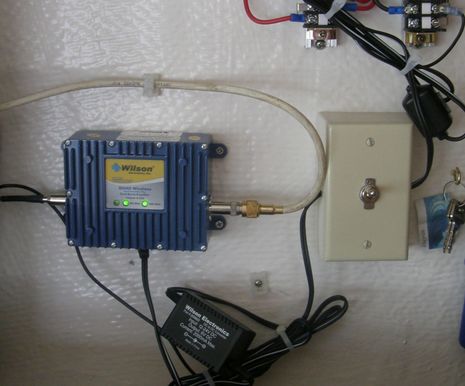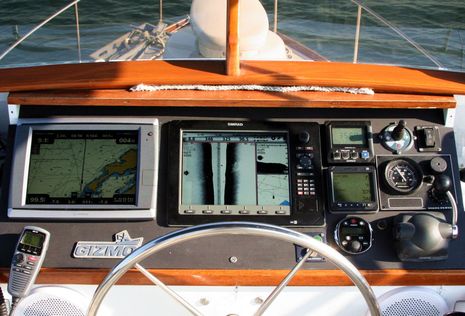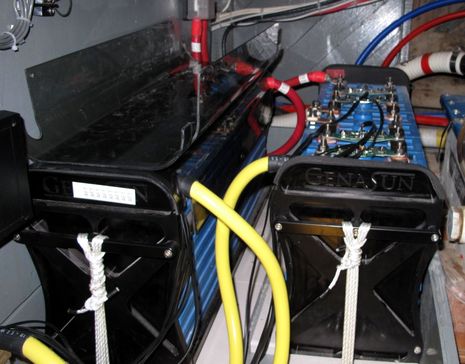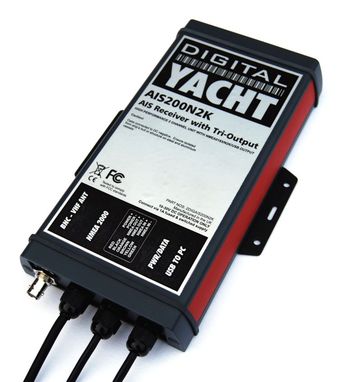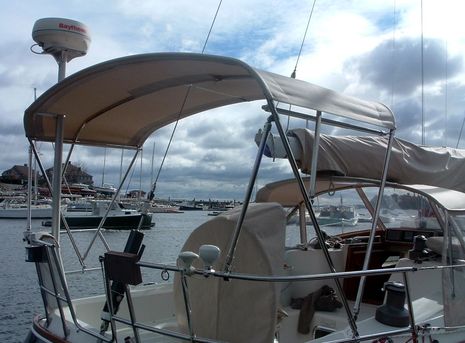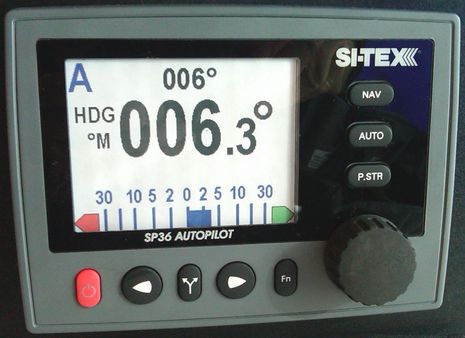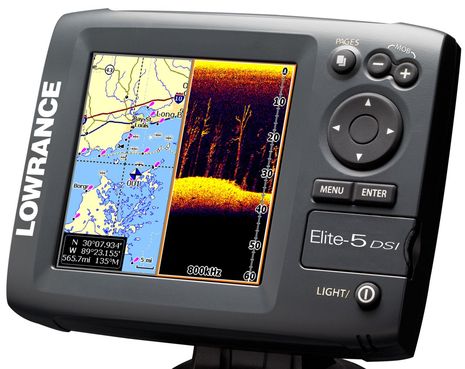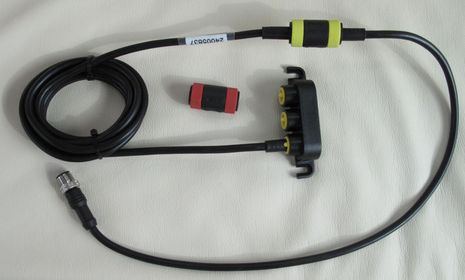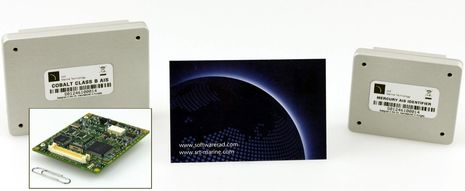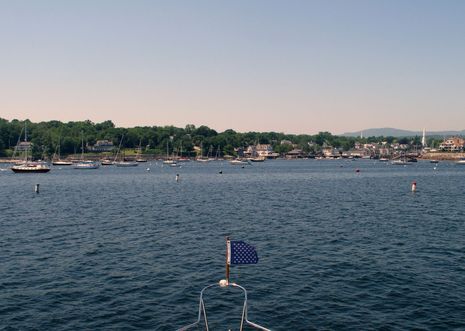Wilson cell booster testing, on Sun Dancer
Panbo reader Pat Harmon is cruising Alaska aboard M/V Sun Dancer and he kindly agreed to write about some gear, seen above, that’s helping him stay in touch:
I recently installed a cell phone booster on my 43′ North Pacific trawler, and although I am not an expert, my hands-on experience may be helpful to my fellow boaters. I am computer literate and had Navy electronics training back in the 60’s…



